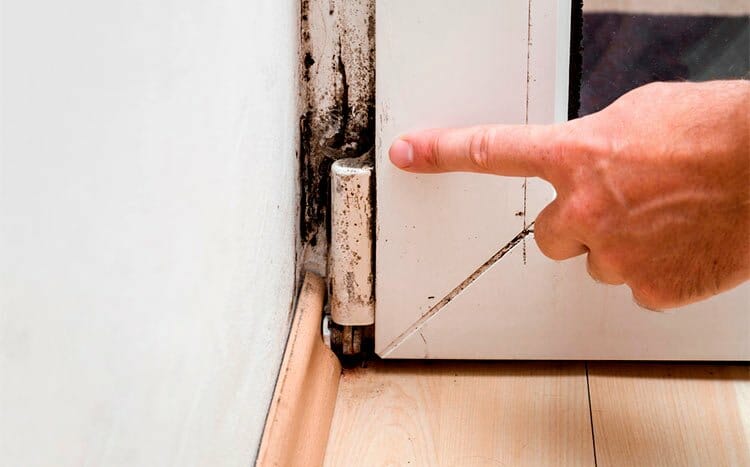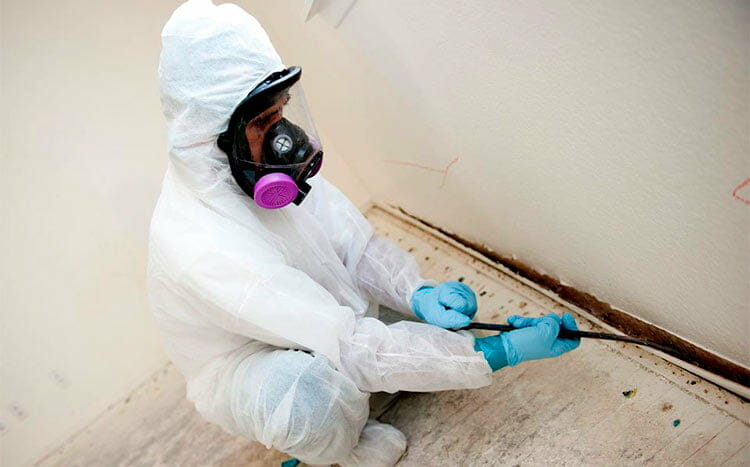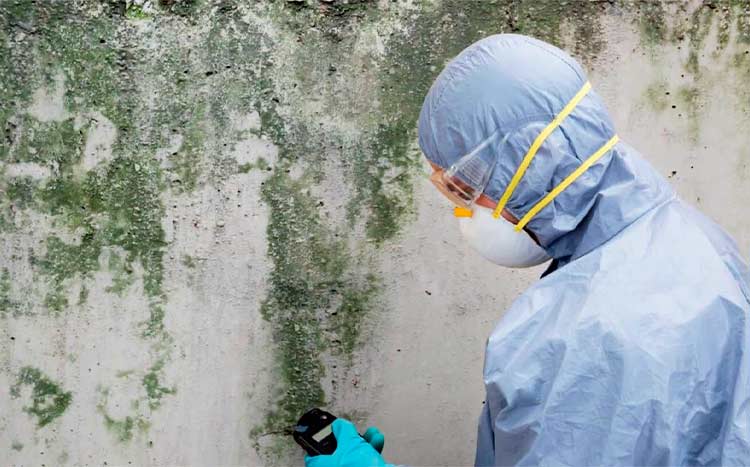The presence of mold in a property can greatly threaten one’s health. Exposure to harmful types of mold can escalate the risk of poisoning. Instances exist where property owners procrastinate in managing mold-related problems. Such situations raise concerns about the actions tenants can take, particularly when facing an unresponsive landlord.
As a tenant, you can refuse to pay rent if the mold problem is so severe that it makes the premises unsafe and uninhabitable. However, you can only do so after you have notified the landlord of the mold problem and then given them enough time to fix the problem.
Here is what you should know about a tenant’s right to withholding rent and mold.

Do you have the right to refuse to pay rent?
Yes, as a tenant, you have the right to refuse to pay rent if the premises become uninhabitable. This usually applies in cases where the premises are no longer habitable or safe, and where the landlord fails to address the problem even after getting notified.
What if I stop paying rent because there is mold?
Since most mold conditions are rarely serious enough to cause premises to be uninhabitable, failing to pay rent simply because there is mold in a rental property amounts to you breaching the tenancy contract.
As a result, the landlord can choose to:
- serve you a written notice asking you to pay the rent within a given period ( usually a week)
- request for dispute resolution via conciliation where you try and find an agreeable way to get you to pay the rent
- apply to the relevant authority or tribunal for an order requiring you to pay the rent
- give you a notice to leave the premises if you fail to pay the rent within 7 days of the rent accruing
- make an application to the authority or tribunal that deals with rental property disputes to get you kicked out of the property if you fail to do so within the time provided
- Seek for an order to terminate the tenancy (from the relevant tribunal or authority in your area)
- Sue you for unpaid rent
Is it the landlord's responsibility to remediate mold?
Yes, it is the landlord’s responsibility to remediate mold. This is because, under the law, the landlord has an obligation to keep the property in a reasonable state of repair. The landlord also has to ensure that the premises are habitable.
And even though mold problems are not generally considered to be urgent repairs, they can make premises uninhabitable. They can also compromise a property’s state as being reasonably repaired. Therefore, mold problems are the responsibility of landlords.
However, it is not their responsibility to fix the mold problem if the tenant is directly responsible for causing it in the first place. In cases where mold arises because of the tenant forgetting to turn off their tap, failing to use fans, or keeping wet or moist items in poorly aerated spaces, the landlord is normally not required to shoulder the burden of remediating the mold that results.
How long does a landlord have to fix mold?
Since most mold problems are generally not classified as being urgent repairs, a landlord usually has about 2 weeks to fix them. This period typically runs from the time that they are notified of the mold problem by the tenant.
Can I use my rent to pay for mold remediation?
Yes, you can use your rent to pay for mold remediation but only if:
- You informed the landlord of the mold problem as soon as you noticed it. In most cases, a written notice is required.
- You gave the landlord enough time to fix the problem and they failed to do so
- You are not to blame in any way for the mold problem
Another thing to keep in mind is that in most areas, there is a limit as to how much you can spend on mold remediation. And so if you go overboard, you may not be allowed to deduct all your expenses.

Can I break my lease because there is mold?
You can only break your lease if the mold problem is so severe to a point where it makes your place uninhabitable. Most mold problems are not severe enough to justify breaking a lease. And so if you do, you are likely to expose yourself to getting sued for breach of contract.
What can I do if my landlord won’t fix the mold problem?
If the landlord doesn’t fix the problem, you can:
- negotiate with the landlord for the termination of the tenancy contract
- take steps to remove the mold on your own and then deduct the cost from the rent
- if the mold problem is severe enough to a point where it makes the home unfit for habitation, you can simply refuse to pay the rent until the mold problem is fixed
- approach the tribunal or authority that handles disputes between landlords and tenants to have the landlord be forced to fix the problem
- go to court and seek compensation for any property damage and loss incurred due to health problems caused by the mold problem
Can you sue your landlord for mold problems?
Yes, you can sue your landlord for mold problems.
Before you can sue them, you have to first inform them of the problem. You have to do this by issuing them a written notice. You also have to give them a reasonable length of time to fix the problem. Depending on your location, you may also have to report the issue to the relevant authority that deals with rental property disputes, before you can be able to take them to court.
However, you can only sue them if you aren’t to blame for the mold problems.
FAQ's
Can a house with mold be sold?
Yes, a house with mold can be sold.
However, when listing the house for sale, or before finalizing the sale, you should disclose this fact. This is because the presence of mold in a house is usually considered to be a material fact. And failure to do so may lead to the buyer voiding the contract or suing you for compensation.
How do you know if mold is making you sick?
You know if mold is making you sick by taking note of the symptoms that you are experiencing. If they match the symptoms associated with mold, then the mold is likely making you sick. This is especially if you have ruled out any other causes.
For example, if you are experiencing worsening asthma symptoms, skin irritation, eye irritation, or any other respiratory problem, chances are that mold is to blame. This is so especially if you notice signs of mold in your home, and you have ruled out any other cause.
If you are experiencing serious symptoms that are typically associated with exposure to toxic mold, you can get tested. A blood test can confirm whether you have been exposed to the mycotoxins that toxic mold usually releases.
Can I stay in a house with black mold?
Yes, you can stay in a house with black mold. In fact, you can do so without experiencing the devastating symptoms that are normally associated with mold poisoning since not all black mold is toxic.
However, it is always advisable to have the mold removed and killed as soon as possible. This is because of the spores that the mold release can trigger allergic reactions in loved ones. If it happens to be toxic black mold, the symptoms may be more serious.
Furthermore, immediate removal is also recommended because the mold may spread, This will make it more difficult and expensive to clear it. And it may also cause extensive damage to your home.
Is it illegal to paint over mold?
No, it is not illegal to paint over mold. However, it is pointless as it will not kill the mold. It may simply hide the mold growth, and this can likely worsen the mold problem.
Is mold an urgent repair?
Generally, mold is not considered to be an urgent repair. This is because most mold growths do not make a home unsafe. They don’t affect a home’s structure. And they rarely put the people living inside under serious health risks.
However, mold problems can sometimes fall under “urgent repair” when they result from a structural issue that makes the home unsafe.








